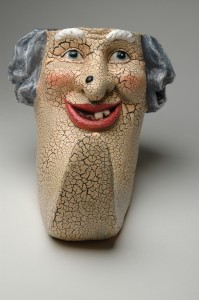Japanese Question: An important issue in the Pacific States and Western Canada, caused by the anti-Oriental feeling of the population of these regions, especially expressed (1906), when the Board of Education of San Francisco barred Japanese pupils from the public schools for whites; and having received its culmination in the disturbances of 1907, during which a number of Japanese eating-houses and shops were wrecked and pillaged. The question became so acute that President Roosevelt sent Secretary of the Navy Metcalf to investigate the situation, the result being a presidential message to Congress, and long negotiations with Japan concerning the exclusion of Japanese laborers. This culminated in the treaty of 1911 with Japan, according to which no Japanese subjects may be excluded from the United States for other than reasons applying to every nation, while the Government of the Mikado promises not to give passports to Japanese of the laboring class.
Joe-Miller: An old jest, a stale joke; derived from Joe or Joseph Miller, a comic actor of the early part of the eighteenth century. His name was attached to a jest-book which was published in 1739, the year after his death, and which became very popular.
John Bull: A humorous impersonation of the English people, conceived of as well fed, good natured, honest hearted, justice loving, and plain spoken.
Jugglers: A term now almost synonymous with conjurer was formerly applied to the professional musicians who accompanied the wandering poets, the Troubadours and the Trouveres of France. These musicians soon came to be employed by kings and princes as minstrels. The professions gradually lost respectability. The Romans had their wonder-workers but the greatest of all jugglers are the Hindu, the famous “basket” trick and the trick of causing almost instant vegetation, the seed being planted, and the tree growing to maturity, budding, blossoming and coming to fruit under the eye of the spectator, are peculiar to the Hindus. Reginald Scot, a juggler and conjurer of 1854 enumerates the trick of his day. They are much the same as now, except for the additions and improvements modern mechanism and science have made. Conus and Boseo were clever conjurers of the eighteenth century. To Robert Houdin (1805-1871) belongs the credit for devising and introducing some very ingenious apparatus including the drum that beat itself, and the chest that was light or heavy at command. He understood, it would seem, the application of electro-magnetism. The modern conjurers, like Hartz and Hermann, aim generally at producing their effects with the minimum of accessories and apparatus.
Jumpers: Religious sects or bodies who make jumping or dancing a part of their ceremony of worship. Certain Methodists of Wales, some Irvingites, the Shakers of America, and a Russian sect have adopted the practice of some extent.
•Taken from the 1912 Standard Illustrated Book of Facts.
See also

